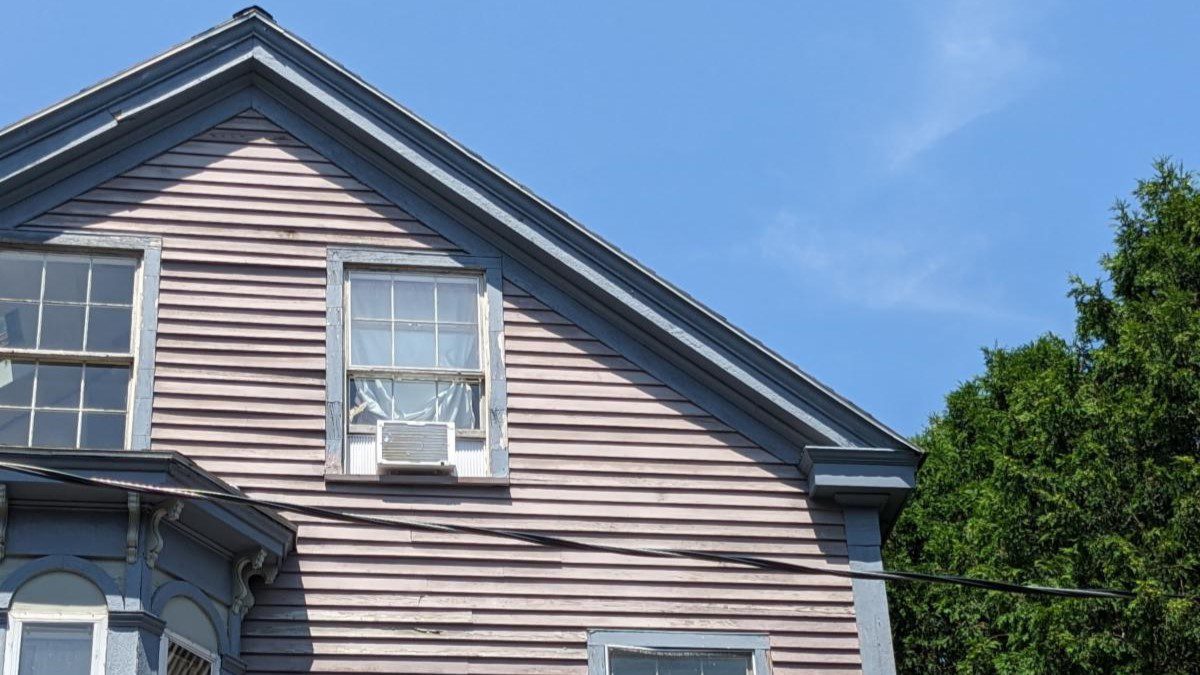Those who have lamented Maine’s unusually cool, rainy start to summer are getting what they wished for and then some this week.
Our first heat advisory of the year was in place much of Thursday across an interior, central swath of the state, including the Augusta and Bangor areas. The heat index or “feels-like” temperature, which takes humidity into account, was in the high 90s — with little relief in sight.
Analysis by the nonprofit Climate Central says these temperatures are made at least twice as likely in Maine due to climate change. The group’s Climate Shift Index uses scientific models to compare how likely current conditions are in the real world versus a hypothetical world without human-caused climate change.
Data from a University of Maine tool showed that worldwide, the past few days were unofficially the hottest on record — part of a jump into “uncharted territory,” according to the Washington Post, when combined with El Niño, ocean heat waves and other alarming trends.
When it comes to health dangers posed by hot weather like this, humidity is as important or more so than air temperature alone. Increasing humidity is also a key component of climate change — Climate Central says the U.S.’s summer “feels-like” temperature has risen three times as much as air temperatures since 1950.
As I write this in Portland on Thursday afternoon, it’s 85 degrees out with 63% humidity. That amounts to a heat index in the low 90s. If it was 90 out and just as humid, it would feel like more than 100. (And don’t forget about the heat island effect — more paved, less shady places like cities tend to run hotter.)
“To our bodies’ cooling systems, humidity makes all the difference,” says a 2019 report by the Union of Concerned Scientists. “Humidity in the air around us limits the evaporation of sweat and reduces the associated cooling effect. So high temperature and humidity cause our bodies to accumulate heat.”
This is dangerous to human health — especially for young children, people over 65 and those with various health problems and disabilities. The public health advice when it gets this hot is familiar: hydrate, rest up and try to stay cool.
But not everyone can easily stay cool in extreme heat. This is true not just for people stuck outside — construction workers, unhoused folks — but also for the roughly 30% of Maine households that don’t have air conditioning.
Let’s explore some federal data on that AC access, from the U.S. Energy Information Administration’s Residential Energy Consumption Survey in 2020 (the most recent edition and the first to include state-level data). I was surprised to learn from this that AC is as prevalent in Maine and Northern New England as it is — you’d never know it to talk to many people here.
Some more context for this data: Maine and New England have some of the oldest housing in the country (that’s another chart I made to recently to check this claim, if you’re interested). The EIA says older homes in cold climates are just a little less likely to have AC. Newer homes are the most likely to have it. Nationwide, AC use has risen from 77% of homes in 2001 to about 89% in 2020.
The EIA also says, “Households that do not use AC are more likely to be renters rather than owners.” Apartments in smaller buildings (two to four units) are least likely to have AC — the national rate for AC use in those buildings was 80%. It was 85% for buildings with five or more units, and 90% for single-family detached homes.
I am one of those lucky renters with AC in my apartment here in Portland — a portable unit provided by my landlord. I’m also one of those disabled folks whose body struggles to manage heat (I have limited temperature sensation due to a spinal cord injury), so I’m leaning hard on that AC this week — though I know it’s using a lot of expensive electricity, which more often comes from fossil fuels at times of high demand in New England.
This means increased AC use in climate change is a self-perpetuating problem — rising temperatures drive AC use, which burns more fossil fuels, which cause rising temperatures. It underscores the urgent need for more energy-efficient homes that can better withstand power outages, and a zero-carbon electric grid.
All the while, AC is becoming become more truly necessary in historically cool states like ours — turning from a perk or convenience to something more people need in order to function or survive. Extreme heat kills more people a year than any other kind of weather. Even moderate heat can cause myriad health problems beyond heat stroke and can also affect our mental health.
That 2019 Concerned Scientists report I mentioned looked at how many more extreme heat days states and cities can expect to see in various climate change scenarios — whether we meet Paris Climate Accords goal of limiting warming to 2 degrees Celsius, or if emissions decline more slowly.
This study shows that historically, Maine has seen, at most, a few days per year with a heat index above 90 degrees Fahrenheit. No matter what we do about emissions, this will change.
Maine can expect one to three total weeks a year with a heat index over 90 by mid-century, and will also start to see more of its first heat indices over 100 in the coming decades. As now, these heat days could be one-offs or come in the even deadlier form of lingering heat waves.
We’re also increasingly unable to rely on good “sleeping weather” in New England summers. Temperatures this Thursday night in much of Maine were not forecast to drop below the high 60s.
Climate Central data says that in Portland, average summer lows have risen 3.6 degrees Fahrenheit since 1970, shifting from the mid- to high 50s. This gives people and ecosystems less opportunity to cool off between hot days, worsening the effects of hot spells.
In general, most Mainers may be less physically acclimated to this kind of heat than other parts of the country, meaning that people’s health could suffer sooner as temperatures rise. And this is an energy justice issue — people with less cash on hand may be less able to afford AC when they need it, or may struggle with high electric bills from using more AC in hotter summers.
We can already look to a deadly cautionary tale in one of the only parts of the country with less AC access than the Northeast. The record-shattering 2021 heat wave in the Pacific Northwest, deemed to have been essentially impossible without climate change, killed hundreds of people.
(Incidentally, the PNW mirrors Maine’s enthusiasm for heat pumps, which can provide crucial high-efficiency summer cooling. Read about Maine’s heat pump rebates in my heating oil series and on Efficiency Maine’s website.)
But besides energy-guzzling window units (which can sell out at hardware stores during hot weather) or more involved HVAC retrofits (which can be pricier and take weeks or months), there are few easy options for cooling down at home in extreme temperatures if you don’t already have AC.
NewsCenter Maine lists ways to keep your bills down while staying cool — keeping your thermostat at 78 or as close to that as you can, shutting the blinds, avoiding using your oven in the hottest times of day, and more.
In 2020, I wrote about a program that gave out free ACs to seniors in one New Hampshire county, but a quick online skim doesn’t show any similar programs in Maine — though Maine Needs is taking donations of box fans.
Be sure to check on your elderly or homebound neighbors in hot weather like this, especially if you live in areas where AC is less common. If staying home is too hot to handle, you might hang out at the library or movies, find somewhere to go swimming, post up at a café with AC, or go to a local cooling shelter.
These are in short supply in housing-strapped Maine, but increasingly represent a climate adaptation: Dover-Foxcroft, for example, is using a state Community Resilience Partnership grant to look at how extreme temperatures on both ends of the spectrum put vulnerable residents at risk, and to plan new emergency warming and cooling shelters.







